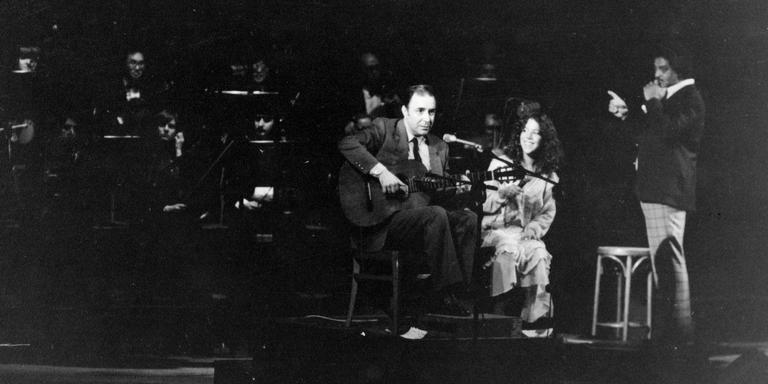


The Gilberto legend: Bossa nova was born out of this family of bohemian brilliance
Long ReadNever before has a musical style been so closely associated with a single surname. In the late 1950s, the Brazilian musician João Gilberto invented bossa nova. Its worldwide influence was as much the work of the guitarist as of his wives: Astrud, the unforgettable voice behind the hit 'The Girl From Ipanema,' and Miúcha, the queen of the genre. Miúcha's daughter, Bebel Gilberto, has now released 'João,' a tribute album to her father, who died in 2019.
In Rio, the Atlantic Ocean can be furious, beautiful and wild. At such times, it allows no one to venture into its waves. It barely lets anyone touch its vast foam. The eight kilometers of beach in Rio's Zona Sul – Leme, Copacabana, Ipanema and Leblon – stretch roughly from the Sugar Loaf to the rocky tip of Vidigal, a favela that glows with a thousand lights come nightfall. There is a type of music that has provided the rhythmic and joyful heartbeat of this urban jungle, dominated by hills and forest: bossa nova. And there's a family that has sung it and guided it to a trans-American destiny: the Gilbertos.
The patriarch of this dynasty was João Gilberto, the inventor of bossa nova – along with Antônio Carlos "Tom" Jobim and Vinícius de Moraes – who died in 2019 at the age of 88. His first wife, the 83-year-old singer Astrud Gilberto, known worldwide as the elegant embodiment of "The Girl from Ipanema" and the voice behind this global hit, passed away in June, in Philadelphia where she lived. Bebel Gilberto, his daughter with his second wife, Miúcha, was born in New York in 1966. At the end of August, she released her seventh album, entitled João, a refined and glowing tribute to her father.
"I've been working with my family for a long time now," said a smiling Bebel, whose real name is Isabel, on her American summer tour. She was accompanied by her Yorkshire terrier named Ella in honor of jazz singer Ella Fitzgerald. There, she reminisced about a childhood memory, the evening of July 4, 1975, at New York's Avery Fisher Hall. She was nine years old, with dark, curly hair and intense eyes. Miúcha, her mother, was backstage with the trumpeter Dizzy Gillespie, "a very kind gentleman," who found the child's dimples amusing.
The great saxophonist Stan Getz was on stage. Her dad was supposed to join him. But he didn't want to. Bebel couldn't remember why. She only remembered the pat on the back, the "You go, you!" that propelled her onto the stage. She didn't know what to do. She started singing, joined by her mother. The next day, The New York Times would rave about the debutante's performance, thrust into the limelight somewhat abruptly.
Romantic and friendly passions
That day, the little girl became a Gilberto, one of the members of this brilliant and sometimes tumultuous lineage. This family's trajectory followed the evolution of Brazil, in the same way as the Gainsbourg-Birkin family embodied the spirit of freedom that swept through France in the 1970s. The Gilbertos epitomized an artistic, enlightened and highly cultured Carioca bohemia, enriched by the arts and humanities. There were also plenty of romantic and friendly passions, along with some eccentricity. With finely crafted words and sophisticated material, they knew how to build worldwide success.
You have 86.35% of this article left to read. The rest is for subscribers only.
